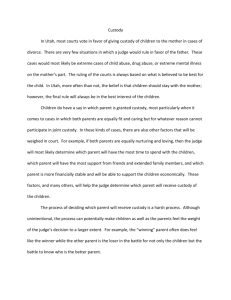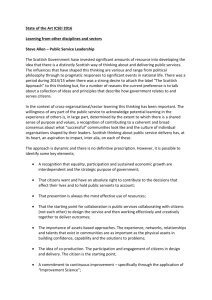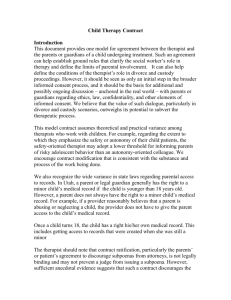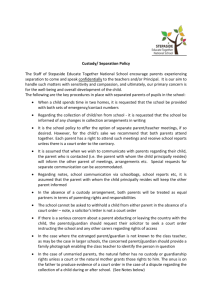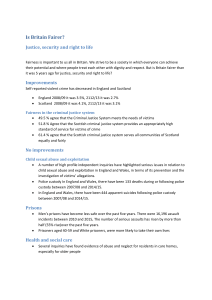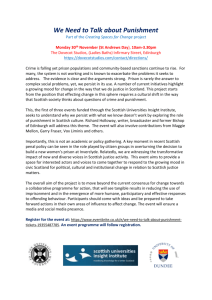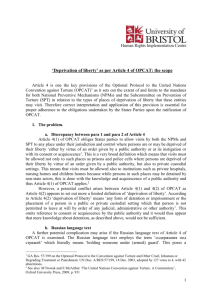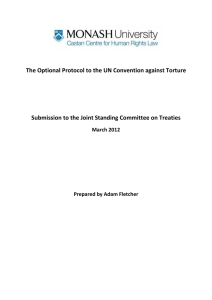Submission - Scottish Human Rights Commission
advertisement
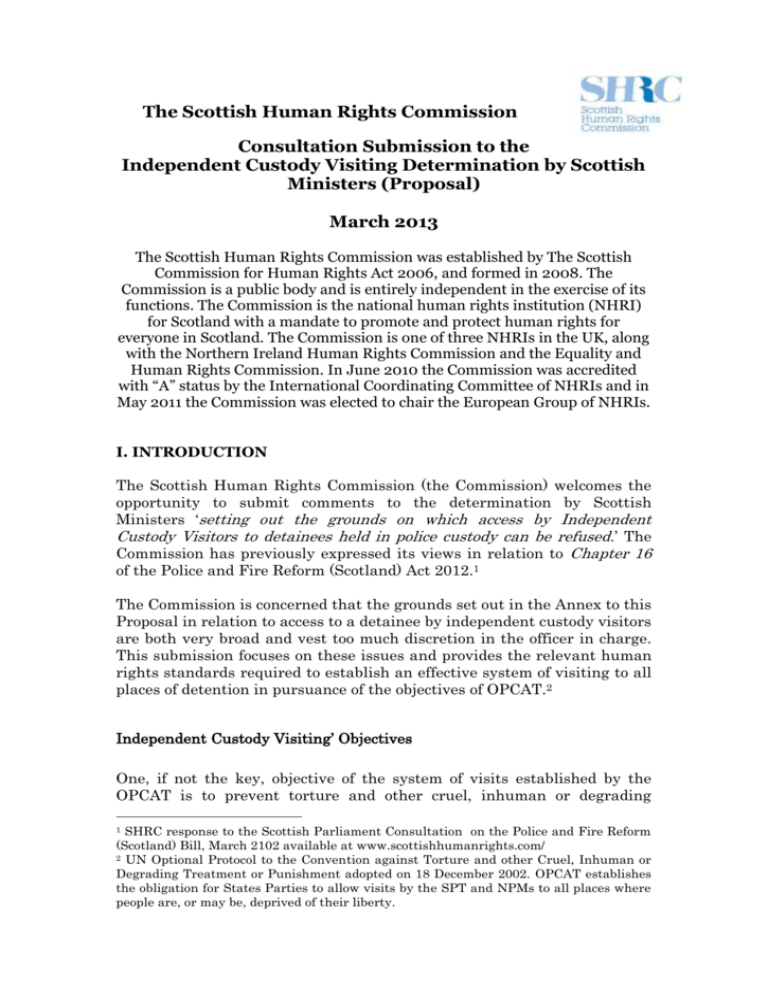
The Scottish Human Rights Commission Consultation Submission to the Independent Custody Visiting Determination by Scottish Ministers (Proposal) March 2013 The Scottish Human Rights Commission was established by The Scottish Commission for Human Rights Act 2006, and formed in 2008. The Commission is a public body and is entirely independent in the exercise of its functions. The Commission is the national human rights institution (NHRI) for Scotland with a mandate to promote and protect human rights for everyone in Scotland. The Commission is one of three NHRIs in the UK, along with the Northern Ireland Human Rights Commission and the Equality and Human Rights Commission. In June 2010 the Commission was accredited with “A” status by the International Coordinating Committee of NHRIs and in May 2011 the Commission was elected to chair the European Group of NHRIs. I. INTRODUCTION The Scottish Human Rights Commission (the Commission) welcomes the opportunity to submit comments to the determination by Scottish Ministers ‘setting out the grounds on which access by Independent Custody Visitors to detainees held in police custody can be refused.’ The Commission has previously expressed its views in relation to Chapter 16 of the Police and Fire Reform (Scotland) Act 2012.1 The Commission is concerned that the grounds set out in the Annex to this Proposal in relation to access to a detainee by independent custody visitors are both very broad and vest too much discretion in the officer in charge. This submission focuses on these issues and provides the relevant human rights standards required to establish an effective system of visiting to all places of detention in pursuance of the objectives of OPCAT.2 Independent Custody Visiting’ Objectives One, if not the key, objective of the system of visits established by the OPCAT is to prevent torture and other cruel, inhuman or degrading SHRC response to the Scottish Parliament Consultation on the Police and Fire Reform (Scotland) Bill, March 2102 available at www.scottishhumanrights.com/ 2 UN Optional Protocol to the Convention against Torture and other Cruel, Inhuman or Degrading Treatment or Punishment adopted on 18 December 2002. OPCAT establishes the obligation for States Parties to allow visits by the SPT and NPMs to all places where people are, or may be, deprived of their liberty. 1 treatment or punishment. Visits to places of detention are preventative in nature as they act as a deterrent as well as contributing to the mitigation of risks of torture and other ill-treatment. It is therefore essential that independent custody visitors ( and other OPCAT bodies) are able to carry out unannounced and regular visits if these are to have significant deterrent and mitigation effects.3 OPCAT is quite clear that NPMs must have, inter alia, functional independence, and free and unfettered access to places of detention and all relevant documentation. The Commission is concerned that the current refusal grounds set out in the Proposal are very broad and give too much discretion to the officer in charge, in particular grounds 1 and 2 of the Proposal. They read: ‘After a risk assessment has been carried out, the officer in charge believes denying a visit to be necessary for the visitors’ safety’; The Commission considers that restricting interviews to protect the personal safety of independent custody visitor or an NPM team should be re-considered. Independent custody visitors should be granted the power to conduct private interviews with persons they have selected in a location of their choosing, including interviewing staff . The Commission suggests that such risk assessment can, for example, be carried out by the visiting team with the cooperation of the officer in charge. Alternatively, an independent body could make the risk assessment or certain mitigating circumstances could be put in place by the visiting member such as a specific request to conduct an interview out of hearing but within sight of guards.4 ‘The officer in charge reasonably believes that such access could seriously interfere with the process of justice’; Given that the purpose of independent custody visiting is to prevent torture and other cruel, inhuman or degrading treatment or punishment while in police custody, the Commission is concerned that the decision to refuse access to a detainee is being taken at an operational level, without any provision for authorisation or oversight. This would appear to give the authority, for refusal of a visit, to the officer who is directly responsible for the treatment of the detainee. Furthermore, the Commission considers that the term ‘seriously interfere with the process of justice’ does not provide a sufficiently clear framework for the implementation of this ground by the officer in charge. Clear See Articles 20(c), 12(a), 14(c) and of OPCAT Instituto interamericano de Derechos Humanos (2010) Optional Protocol to the UN Convention against Torture. Implementation Manual, revised version. 3 4 definitions of each ground are essential to clarifying when they can be implemented, and therefore ensuring that limitations on the work of the independent visitors are not arbitrary. The Commission recommends that in order to guarantee the effective and independent functioning of NPMs, the Scottish Government should ensure in the legislation that independent custody visitors will be free from any undue interference and guaranteed unfettered access to relevant persons, information and premises in the places of detention. SHRC

